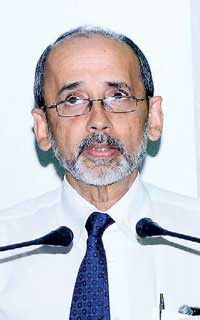30 Jan 2018 - {{hitsCtrl.values.hits}}
By Chandeepa Wettasinghe
Continuing the rigid stance taken by the government recently with respect to the tea trade, the Sri Lanka Tea Board, starting next month, will begin to shut down as many as 200 tea factories, which fail to meet the sanitary standards when producing tea.

Sri Lanka Tea Board Chairman Rohan Pethiyagoda said that the tea manufactured in many factories now include grit, stones, lizards, glass fragments, insects and other residuals, while numerous factories now caramelise tea during the production.
“We will be selecting factories whose tea we will test and if we find the things I told you about, we will shut them down because I don’t really think they deserve to be in business. Out of the 700 tea factories in Sri Lanka, we will have a better industry, a richer industry, if we shut down a couple of hundred,” he said. Just last week, Plantation Industries Minister Navin Dissanayake said that a new monitoring agency would be set up to monitor the regional plantation companies for similar production standards, replanting and financial operations.
The increased scrutiny comes after increasing trouble faced by tea exports in foreign countries with respect to the quality of tea exported by Sri Lanka, Pethiyagoda said.
“A consumer has the right to clean tea,” he said.
Sri Lanka exports the most expensive mass produced tea in the world.
According to Pethiyagoda, tea factories are no longer owned only by gentlemen but also by political stooges, who are looking to make a quick buck by adding sugar to tea leaves during the production process, to caramelise tea to have a more pleasing appearance.
However, this leads to a conducive environment for fungi to grow, which release carcinogenic toxins, especially when stored in warehouses in humid conditions in areas such as Colombo, Pethiyagoda said.
Even when the production in such factories was halted in the past, these owners were able to use their political connections to reopen the factories and resume supply of substandard tea, Pethiyagoda said.
How the Sri Lanka Tea Board would find the manpower for the increasing monitoring of the state remains to be seen, since Pethiyagoda in the past has emphasized that the authority is stretched to its limits in conducting its existing policing activities.
20 Nov 2024 11 minute ago
20 Nov 2024 24 minute ago
20 Nov 2024 33 minute ago
20 Nov 2024 33 minute ago
20 Nov 2024 34 minute ago